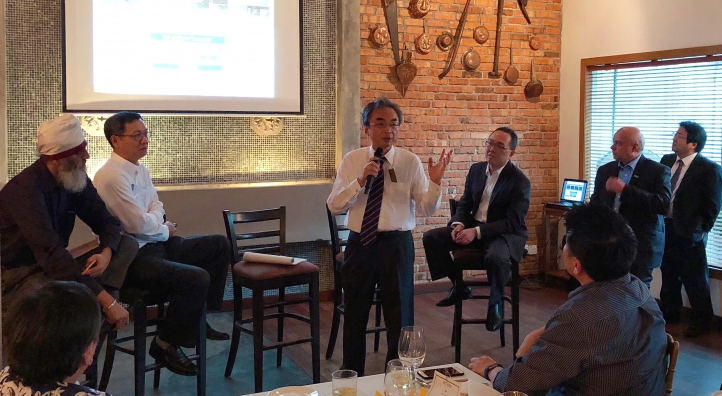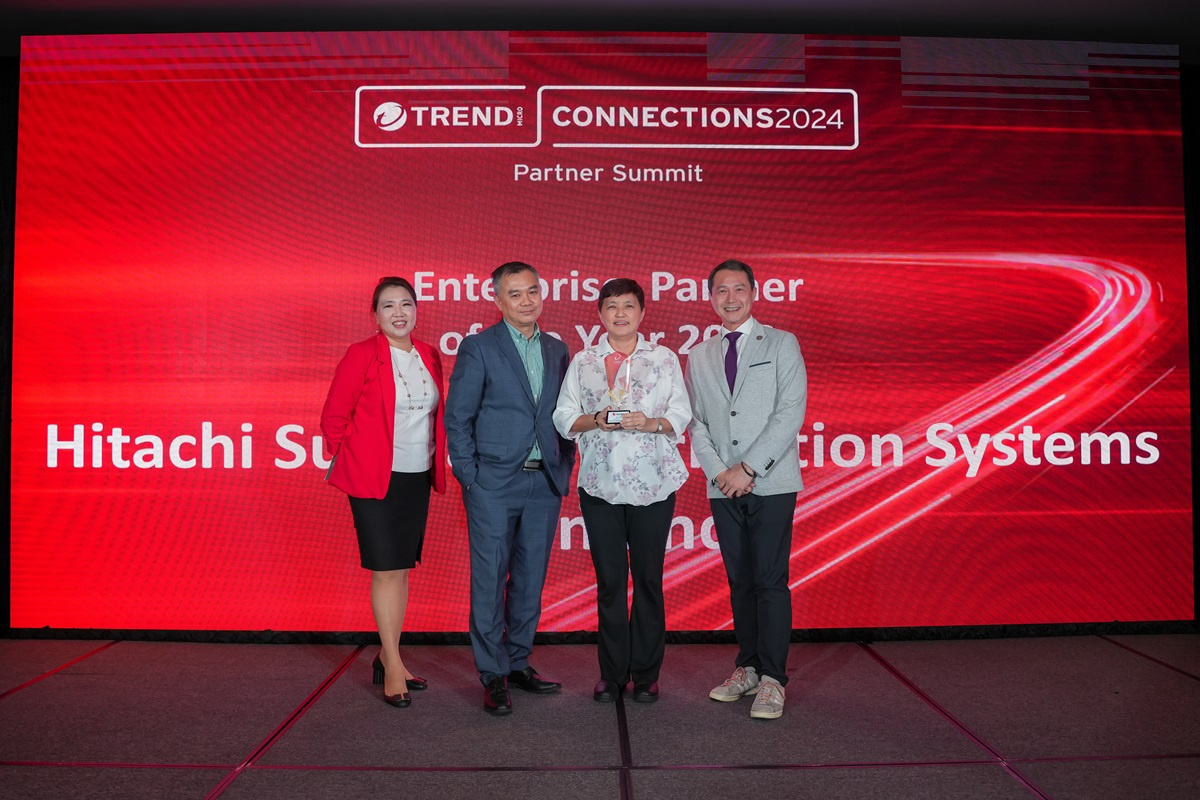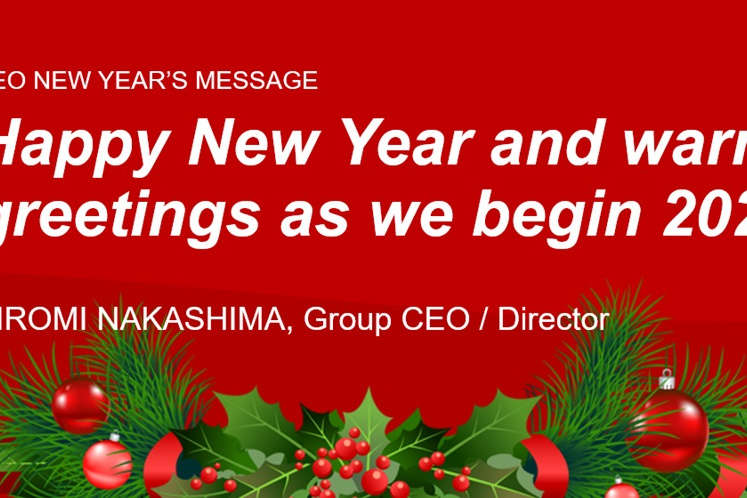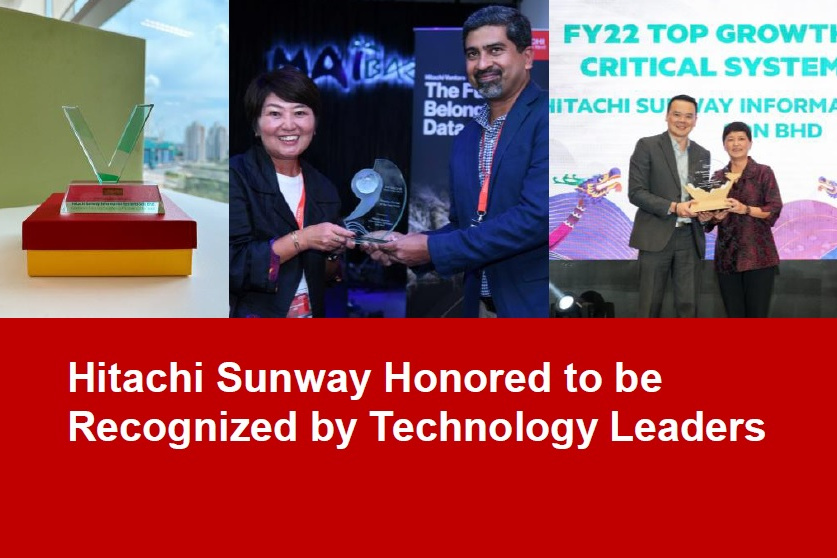
- Ambitions in line with initiatives like Europe's Industrie 4.0 and Japan's Society 5.0
- Finance, O&G leading way, manufacturing, especially SMEs & retail have ground to make up
DIGITIZATION efforts in Malaysia are beginning to take root, but uncertainty and caution in both implementation and policy need to be overcome. That seemed to be the overarching conclusion one got after attending a closed-door event hosted by Hitachi Sunway Information Systems Sdn Bhd (Hitachi Sunway), Powerware Systems Sdn Bhd and Hitachi Asia (Malaysia) Sdn Bhd for a group of CIOs held in Kuala Lumpur recently.
In front of a crowd that included prominent CIOs from Malaysian industry, the guest of honour for the event, Masahiro Kitano, the President and CEO of Hitachi Systems, Ltd, laid plain the ambitions held by MNCs and countries the world over with regards to digital transformation.
Kitano elaborated that Hitachi is playing a leading role in Japan’s nationwide strategy “Society 5.0” (which Kitano dubbed the "Super Smart Society") resulting in the digitization of both industrial and social infrastructure.
The company is encouraging manufacturers to make the digital transformation from simple automation to "smart factories", building solutions utilizing IoT and Big Data. To this end, they have created an IoT Platform called Lumada to implement them on.
It was clear that Hitachi Systems has an ambitious roadmap and framework to work on. In many ways, Malaysia is in the same situation, but the uptake is a little more cautious.
Finance and O&G leading; manufacturing, SMEs and retail lagging
Hew Wee Choong, Vice President, Investment and Industry Development at Malaysia Digital Economy Corporation (MDEC), identified the finance sector as one that was leading the charge to digitization, in part because of the looming disruptive threat of fintech. "Another industry that we see with a bit more digital adoption compared to others would be the Oil and Gas industry," he added.
As for those at the other end of the scale, this group comprises manufacturing (especially the SMEs) and the wholesale and retail companies, whose management still make decision "based on their gut" rather than data.
Nevertheless, awareness and ambition is present, if not acted on. "Digital innovation in Malaysia is there," clarified Michael Warren, Director of Strategy Advisory and Services, InvestKL, "But our regulations and policies sometimes struggle".
The hazy cloud of Malaysia's digital aspirations
One example discussed was how Malaysian industry and policy makers viewed and implemented cloud technology.
Citing data from the IDC, Cheah Kok Hoong, the Group CEO of Hitachi Sunway said there was awareness that the technology was beneficial. "The figures have gone up, in the sense that most of the companies in Malaysia have started considering cloud." However, the most popular cloud application is Microsoft 365, which is the thinnest sliver of what is possible.
Caution seems to be the word of the day. "From a government perspective we're very concerned where does data in the cloud go to?" asked Michael. "Who is in control of the cloud?"
Reflecting this, a straw poll of attendees found that only a minority were using the cloud, and many preferred a private/public hybrid model when it was used.
Even when it is part of the national agenda, there are still issues with implementation. Cheah lauded the "Cloud-first policy" announced by the Malaysian government in the budget in October. But Cheah points out that "some government agencies or departments view cloud as a technology that they must own," thereby defeating the cost-saving benefits of it.
Ganesh Kumar Bangah, the chairman of PIKOM, even warns that moving services to the cloud may in fact raise costs. "They use your data to identify what they can actually upsell you in the next product version," he says, pointing out the irony.
Funding in Malaysia is available
Another issue discussed was the availability of funding in Malaysia.
"One of the issues was when we lost Grab to Singapore," said Michael referring to the ride-sharing startup that began in Malaysia in 2011 and still has its main operations in the country. "But Grab went to Singapore because there was more money in Singapore."
This sort of issue pushed Malaysia to improve the local situation. "Recently, Garage Technology Ventures, one of the largest VCs in America have come to Malaysia. Mountain Partners one of the largest in Europe have also come to Malaysia."
Now the challenge is possibly whether the money is being put to good use. For example, the Malaysian government has set aside US$57.5 million (RM235 million) for multinational companies to work on Industry4.0. But Michael stressed that they are mandating that multinationals can only access that fund if they partner with Malaysian companies, fearing that otherwise the MNCs would not partner with the local ecosystem and add value.
A cautious first step
It was clear that for Malaysian industries, the spirit is willing, just the way of actualizing it is a challenge. When asked who in the audience had used bitcoin or similar cryptocurrencies, nobody in the room raised their hand. Cheah however shared that Hitachi Sunway Information Systems had done some work on blockchain as part of their efforts to research digital transformation, although it is yet to be implemented in the field.
In fact, an argument was made that bitcoin was more like the Friendster of cryptocurrencies, and would eventually be overshadowed by second or third-generation incarnations. That would be the version that will gain widespread adoption.
This perhaps summed up the prevailing sense of where Digital Malaysia was at the moment. Ambitious and in tune with the rest of the world, yet cautious and waiting for others to make the first move.
Source URL:
https://www.digitalnewsasia.com/business/clearing-clouds-around-malaysias-digiti...



